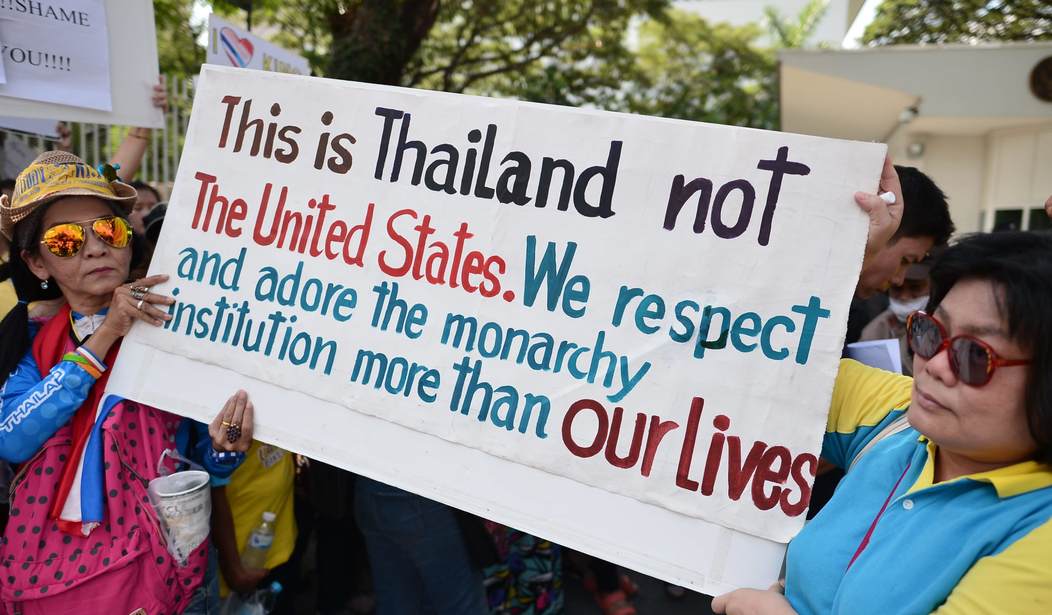The Obama administration and its former secretary of state, Hillary Clinton, promised us smart diplomacy, and this — among other things — is what we got:
Bangkok police have launched an inquiry into whether a controversial speech by US ambassador Glyn T. Davies condemning long prison sentences for lese majeste convictions violated Thailand’s royal defamation law. Police at the Lumpini station began their initial probe after a complaint was filed against the US ambassador for his Nov 25 comments at the Foreign Correspondents’ Club of Thailand.
In the speech, he expressed the US government’s concern over the “unprecedented” prison terms handed down for violations of Section 112 of the Criminal Code, as well as the application of the country’s criminal defamation laws. The speech sparked a protest by ultra-nationalists outside the American Embassy Nov. 28.
The complaint also demanded police summon the American ambassador for questioning as “the reported speech was an insult to the monarchy that Thai people could not stand idle.”
In his remarks to the Foreign Correspondents’ Club of Thailand, Ambassador Davies (who’s only in the ninth week of his post) criticized the Thai military courts for harsh prison terms meted out to civilians for defaming officials — the crime of lèse-majesté.
“We’re also concerned by the lengthy and unprecedented prison sentences handed down by Thai military courts against civilians for violating the lese majeste law,” Mr Davies told a sold-out event. “We believe no one should be jailed for peacefully expressing their views and we strongly support the ability of individuals and independent organisations to research and to report on important issues without fear of retaliation,” he said.
Under the lese majeste law, a conviction for insulting the King, Queen, heir or regent faces up to 15 years in prison. Longer sentences are given if there is more than one offence, and if prosecutors use additional laws, such as the Computer Crime Act. Since last year’s coup the military has stepped up its patrol of alleged lese majeste offences, especially on social media. Analysts have concluded harsher prison sentences are being given than in the past.
In August the United Nations said it was “appalled” by the record jail sentences of 30 and 28 years handed to two Thais for royal defamation for “insulting” the monarchy on Facebook. All media in Thailand including the foreign press routinely self-censor reports concerning the monarchy.
The law allows anyone to launch a complaint, and police are duty-bound to investigate. Critics have said lese majeste and criminal defamation laws are often used to pursue political opponents.
It’s not an official police investigation yet, and in any case, the ambassador is covered by diplomatic immunity so nothing will ever come of it. And it’s all very well for Americans to be able to freely speak their minds — in their own country, where the First Amendment protects such speech. But ambassadors are also supposed to have some understanding of the culture and the laws of the countries to whom they represent the United States of America. That’s why they’re called “diplomats.”
The Obama administration: winning friends and influencing people around the globe.









Join the conversation as a VIP Member